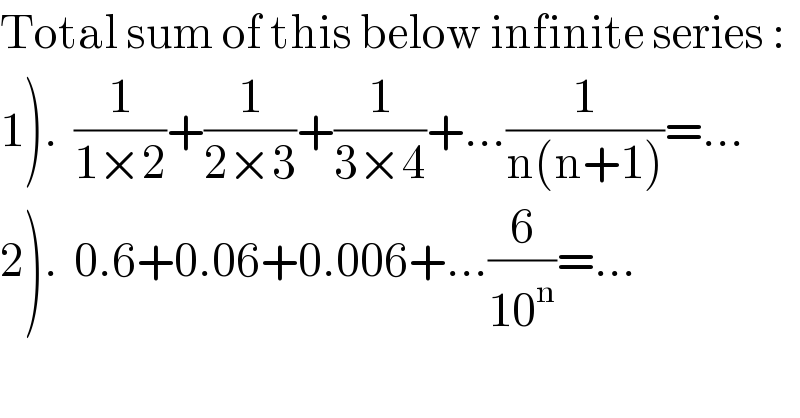
Question and Answers Forum
Question Number 91796 by zainal tanjung last updated on 03/May/20

Commented by mathmax by abdo last updated on 04/May/20

Answered by $@ty@m123 last updated on 03/May/20

| ||
Question and Answers Forum | ||
Question Number 91796 by zainal tanjung last updated on 03/May/20 | ||
 | ||
Commented by mathmax by abdo last updated on 04/May/20 | ||
 | ||
Answered by $@ty@m123 last updated on 03/May/20 | ||
 | ||
| ||